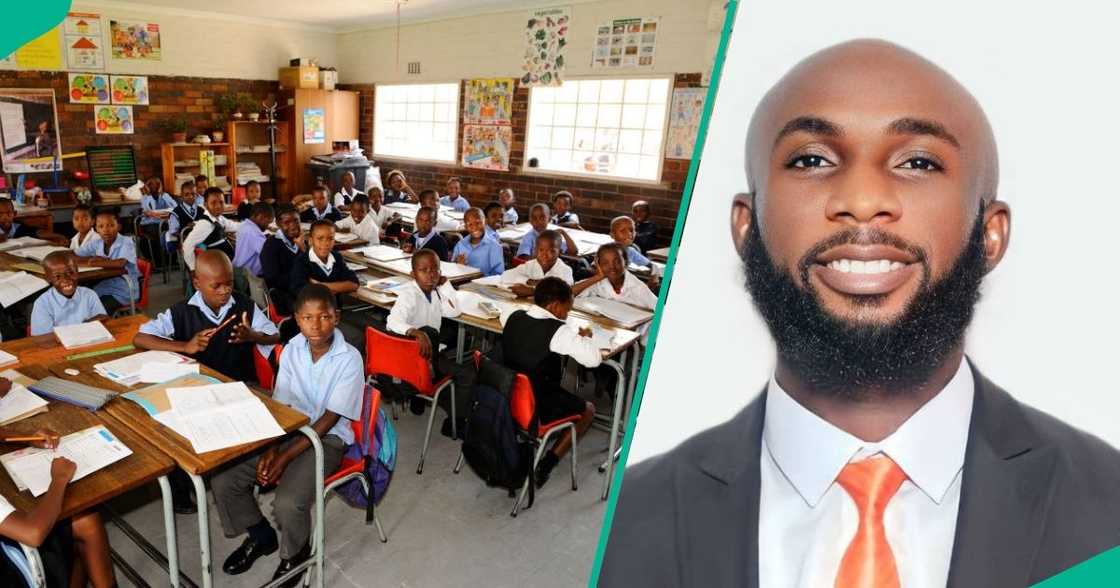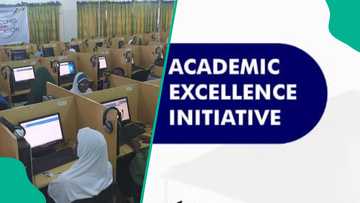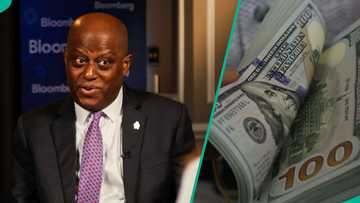Founder Urges EdTech Sector to Embrace African Languages Innovation
- Wisdom Okubo has called for more inclusive EdTech funding that supports innovations rooted in African languages and culture
- He claimed that more support is given to globally polished ventures over community-driven solutions
- Okubo urged institutions to expand their definition of innovation to include cultural sustainability, linguistic inclusion, and local impact
Wisdom Okubo, founder of Okubo Wisdom Legacies, a LangTech venture dedicated to preserving and revitalising indigenous African languages, has called for greater inclusion of African language-based solutions in education technology (EdTech) initiatives across the continent.
According to him, more attention must be given to startups that reflect Africa’s linguistic diversity and cultural heritage, even if they lack global branding or affiliations.

Source: Getty Images
He stated this while reacting to the recent exclusion of Izesan Limited from the Mastercard Foundation EdTech Fellowship administered by Co-Creation Hub (CcHUB).
Izesan!, a Nigerian EdTech startup, develops mobile and digital learning tools that promote indigenous African languages among children both within Nigeria and in the diaspora, Guardian reports.
More recognition for local startup
Okubo stressed that the exclusion of Izesan calls for the need for broader definitions of innovation and impact in the African EdTech ecosystem.
Okubo argued that the startup’s mission aligns closely with international development goals focused on educational inclusion and cultural preservation.
He said:
“This is not merely another case of a startup being overlooked. It reflects a deeper issue in how we define innovation and who is deemed worthy of funding.
“Izesan! is not simply developing mobile applications. It is restoring cultural confidence in children, giving voice to marginalised communities, and safeguarding language, Africa’s first and oldest technology, from being lost in the pursuit of scale.
“We must confront an uncomfortable truth: too many innovation hubs and fellowships claim to prioritise local solutions, yet in practice they favour ventures with global polish. They speak of inclusion but reward exclusivity. They celebrate African voices, but only after those voices have passed through international accelerators.
“The future of African EdTech cannot be written in borrowed code or foreign scripts. It must be grounded in our realities: our languages, our communities, our children. Ventures like Izesan! are not peripheral players.
“They are pioneers. And they deserve support that reflects their cultural and educational importance.”
Okubo urged institutions like CcHUB and the Mastercard Foundation to reevaluate how they define innovation and whom they support.
He added:
"It is essential to recognise the value of sustainability, cultural authenticity, and linguistic inclusion. The most powerful innovations do not merely change systems they affirm identities.
"We must work towards building an ecosystem where African children can learn, dream, and innovate in their own languaOkubo Wisdom Legacies, his LangTech venture, focuses on revitalising indigenous languages through technology, content creation, and educational tools."

Source: Getty Images
Chub clarifies its selection process
Meanwhile, in a statement released, CcHUB has clarified the allegations of favouritism made by applicants who did not make the final cut of its Mastercard Foundation EdTech Fellowship.
The EdTech fellowship aims to accelerate 36 EdTech startups by the end of 2025, offering up to $100,000 in non-equity funding alongside mentorship and network support.
The organisation described the fellowship’s selection process as rigorous, involving eligibility checks, internal evaluations, interviews, and due diligence.
CcHUB added that it is offering additional feedback to finalists this year and reaffirmed its commitment to fairness and transparency in its programmes.
FG invites youths to apply for deeptech
Earlier, Legit.ng reported that the Nigerian government has launched a new programme aimed at helping youths prepare for the job market.
The programme is designed to equip 20,000 young Nigerians with in-demand technical expertise.
Nigerians who are ready to upskill will have to register and apply using their National Identification Number or Bank Verification Number.
Source: Legit.ng




